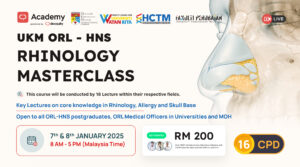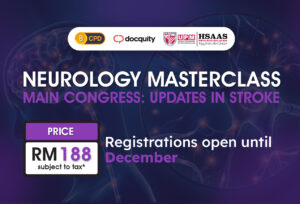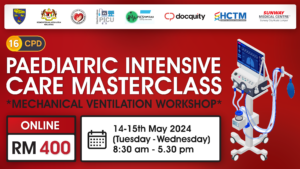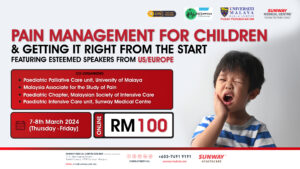
Basics of Emergency Medicine Course – Part B
Basics of Emergency Medicine Course – Part B
Expand your knowledge and skills in healthcare with our specialized medical courses, including the Basics of Emergency Medicine Course.

Overview of Basics of Emergency Medicine- Part B
The Basics of Emergency Medicine- Part B course is a rapidly expanding specialty in global medicine, gaining recognition for its crucial role in caring for critically ill patients. Emergency medicine is a unique discipline with specialized knowledge in responding to life-threatening events. Numerous countries have acknowledged the importance of this specialty, providing specific training programs to develop a skilled cadre of physicians capable of managing patients with emergent medical conditions.
Who will benefit the most from this course?
Beneficial for General Practitioners, this course enhances skills in rapid response medicine, advanced diagnostics, and critical care interventions. It expands their scope of practice, improving patient outcomes in urgent and acute cases.
Highly beneficial for Emergency Medicine Physicians, this course provides advanced training in rapid response medicine, refining diagnostic and treatment skills, and enhancing critical decision-making abilities. It empowers them to deliver optimal care in high-pressure emergency settings.
This module offers invaluable benefits to critical care physicians, enriching their expertise in handling urgent and acute medical conditions. With a strong emphasis on rapid assessment, resuscitation, and critical decision-making, it equips them to deliver timely and effective care in urgent care settings.
This module benefits pediatricians by enhancing their skills in managing pediatric emergencies and acute conditions. It focuses on specialized approaches for pediatric resuscitation, recognition of critical pediatric illnesses, and improving the provision of urgent care for children. This leads to improved patient outcomes in emergency situations.
This module is beneficial for nurses, as it enhances their knowledge and skills in managing urgent and acute medical situations. Through participation in the course, nurses can improve their assessment, triage, and intervention abilities, enabling them to contribute to delivering high-quality care in urgent care settings and emergency departments.
What will you learn in this course?
The Breathing Disorder Emergencies
This module prepares healthcare professionals to manage respiratory emergencies, covering assessment, diagnosis, treatment, interventions, and the pathophysiology of breathing disorders. Optimal care for critical respiratory situations is emphasized.
Paediatric Emergencies : PALS approach to Paediatric Resuscitation
This module equips healthcare professionals with knowledge and skills to manage paediatric emergencies using the PALS approach. It covers resuscitation algorithms, assessment, and treatment strategies for critically ill or injured children, ensuring optimal care in these situations.
Management of Stroke
This comprehensive course equips healthcare professionals with knowledge and skills in stroke assessment, treatment, and rehabilitation. It covers stroke identification, acute interventions, secondary prevention, and post-stroke care, improving patient outcomes and ensuring optimal management.
Approach to Toxidromes in the Emergency
This module prepares healthcare professionals to identify and manage toxicological emergencies. Participants learn to recognize toxidromes, perform assessments, implement interventions, and provide effective care in toxicological emergencies.
Managing OB Gyn Emergencies
This module emphasizes the assessment, diagnosis, and management of gynecological emergencies presenting in the ER, particularly heavy bleeding. Proper symptomatic management and investigations are crucial to prevent deterioration. Participants will learn to provide optimal care for women in critical situations in this field.
Endocrine Emergencies: focussing on diabetic emergencies
This module focuses on the diagnosis and evidence-based management principles of hypo and hyperglycemic conditions, which can be acutely life-threatening and challenging to diagnose. Participants will learn an approach to establish the appropriate diagnosis and tailor resuscitation strategies for these patients.
Course Reviews
Acquiring knowledge in Emergency Medicine will undoubtedly enhance my skills as a GP. The highly interactive sessions, which participants are willing to pay for, provide immense value. I am confident that this course will greatly benefit me, and I am excited to recommend it to my friends.

Dr. Cheow Lai Ru
I firmly believe that knowledge knows no bounds. In my quest for continuous learning, I found the perfect platform in Docquity. Being able to learn from Dr. Ganguly has always been an absolute delight for me.

Dr. Sharaya Palit
I would like to extend my heartfelt gratitude and appreciation. The content was concise, focused, and highly informative. I recognize and value the tremendous effort put into crafting and maintaining its quality. I am genuinely thankful to everyone involved, especially the instructor.

Dr. Shivali Shamsher
Meet your instructor.

Dr. Sudeshna Ganguly
Dr. Sudeshna Ganguly currently serves as the medical director for Teladoc Health International in India, the Indian subcontinent, and the UAE. With a background in emergency medicine, she is serving as an examiner for the Royal College of Emergency Medicine in the UK, as well as a lead faculty and course coordinator for the Masters in Emergency Medicine program at The Society of Emergency Medicine India (SEMI). She has also worked as a course coordinator and faculty member for the Masters in Emergency Medicine program at George Washington University in the USA.
Frequently Asked Questions








